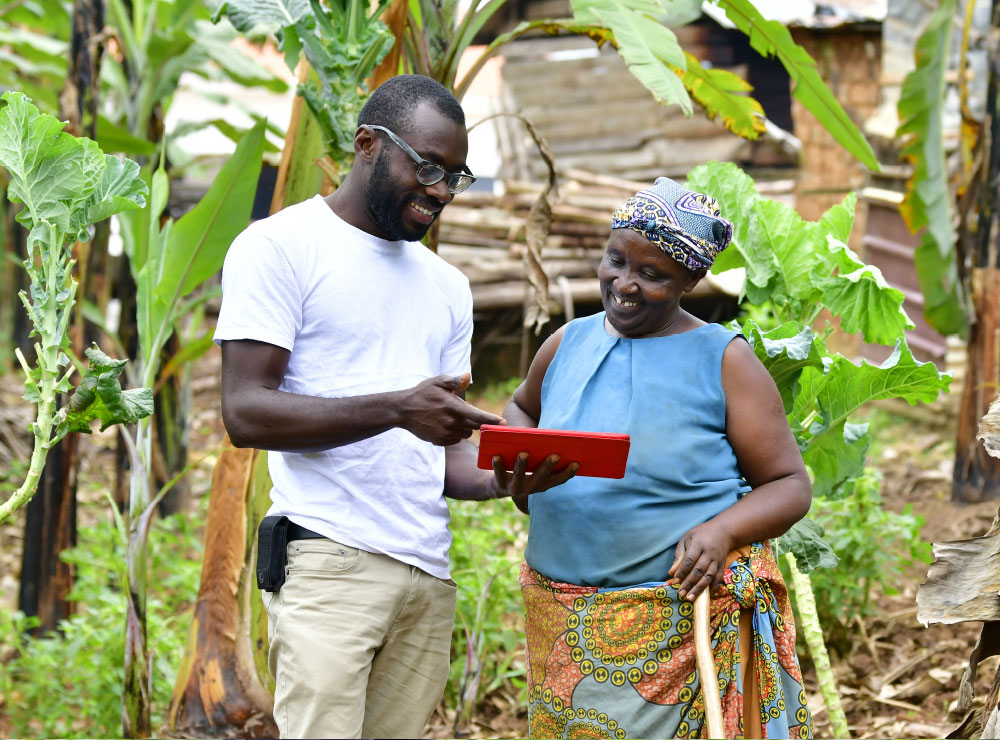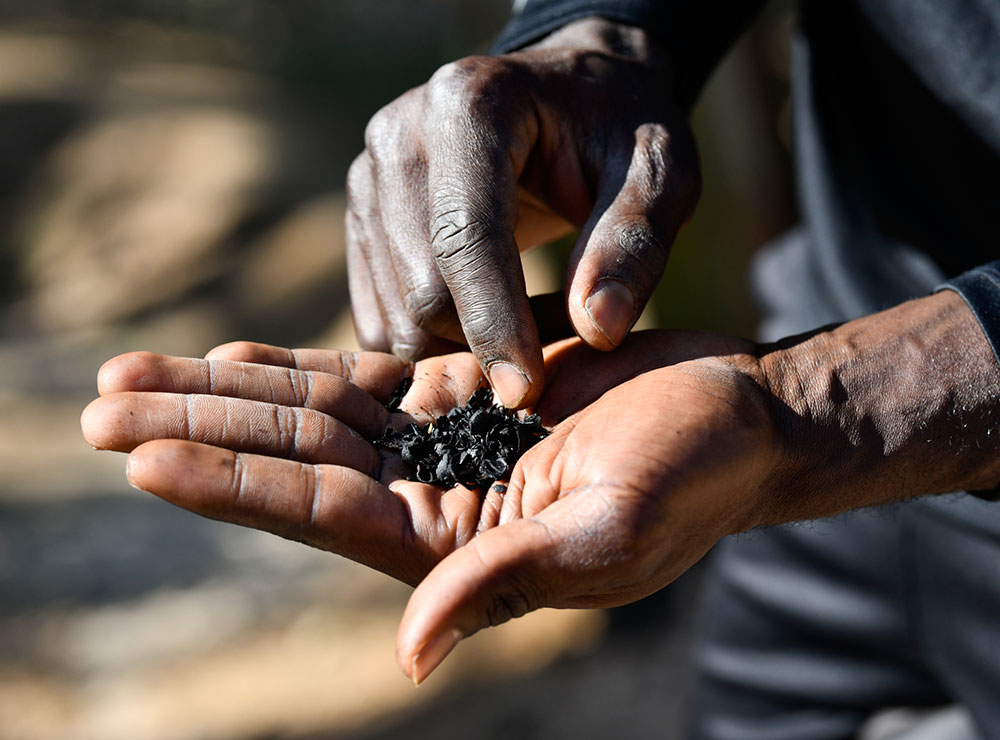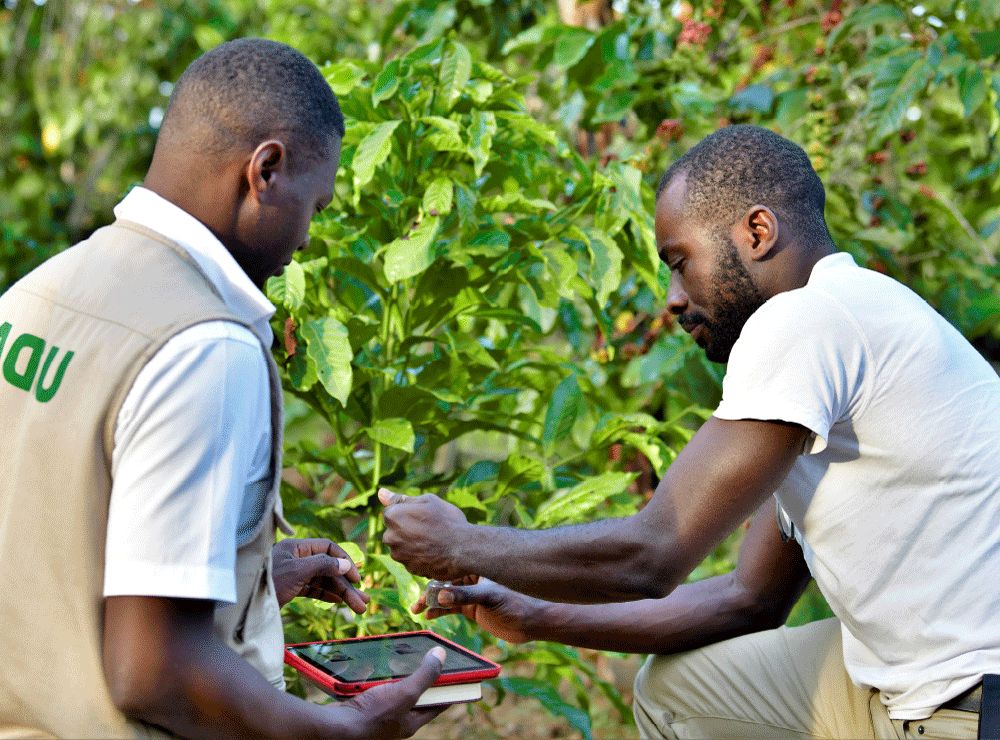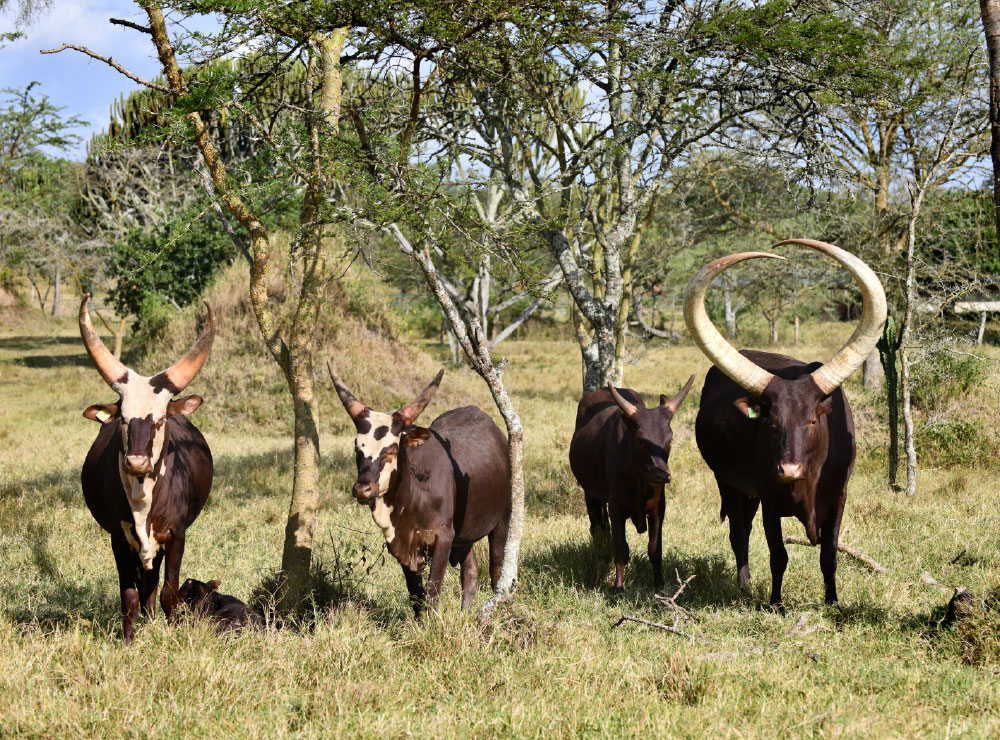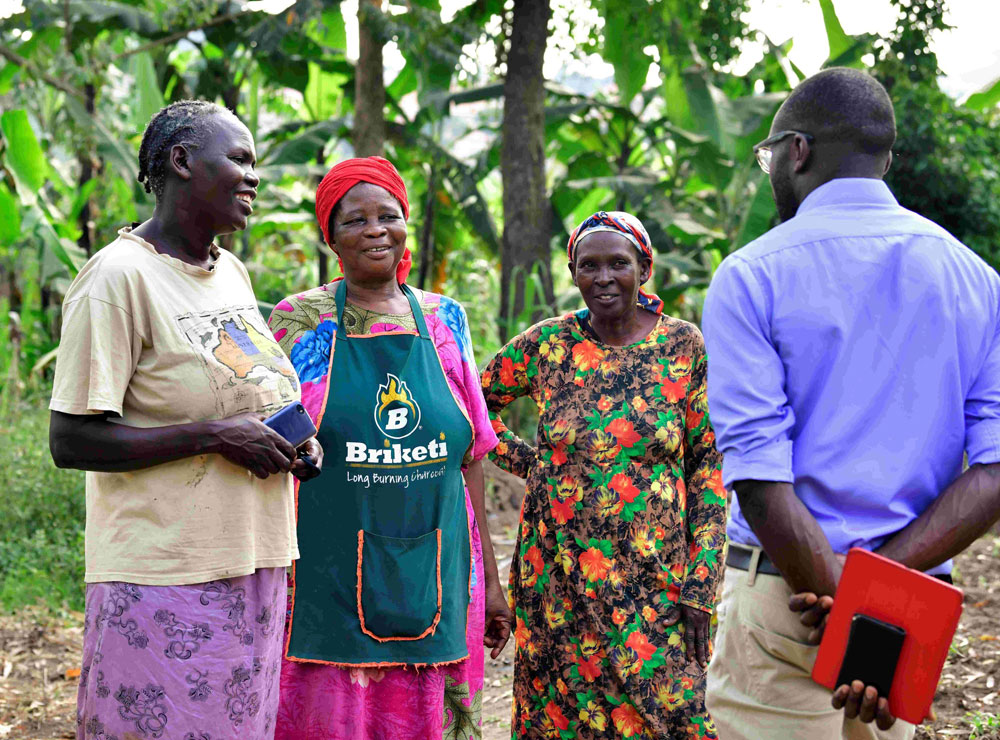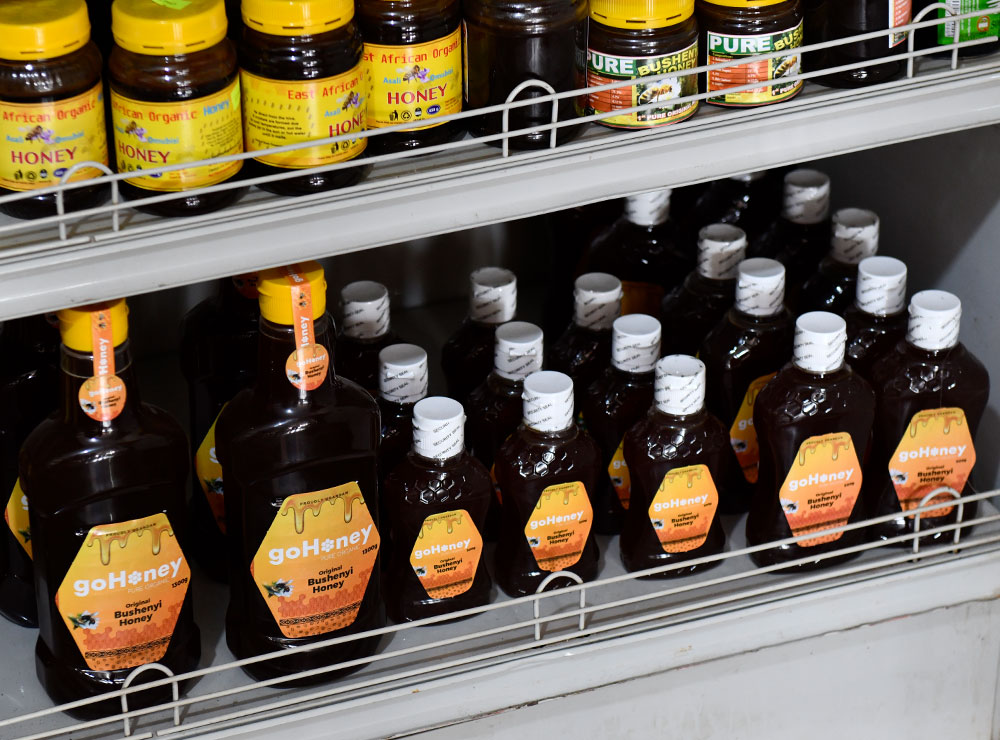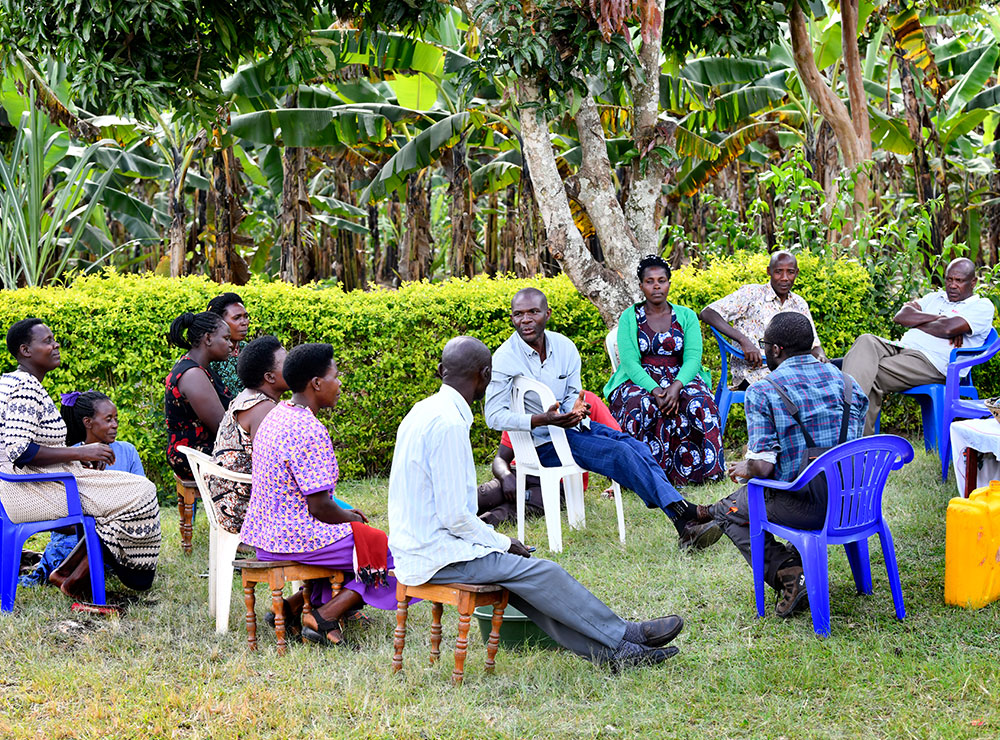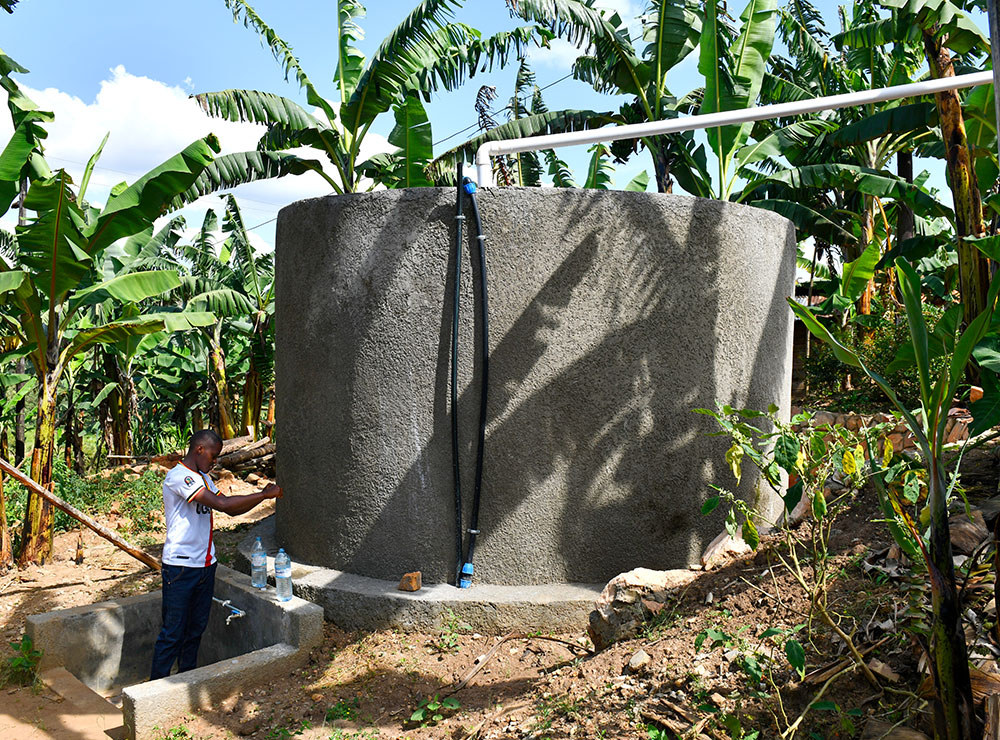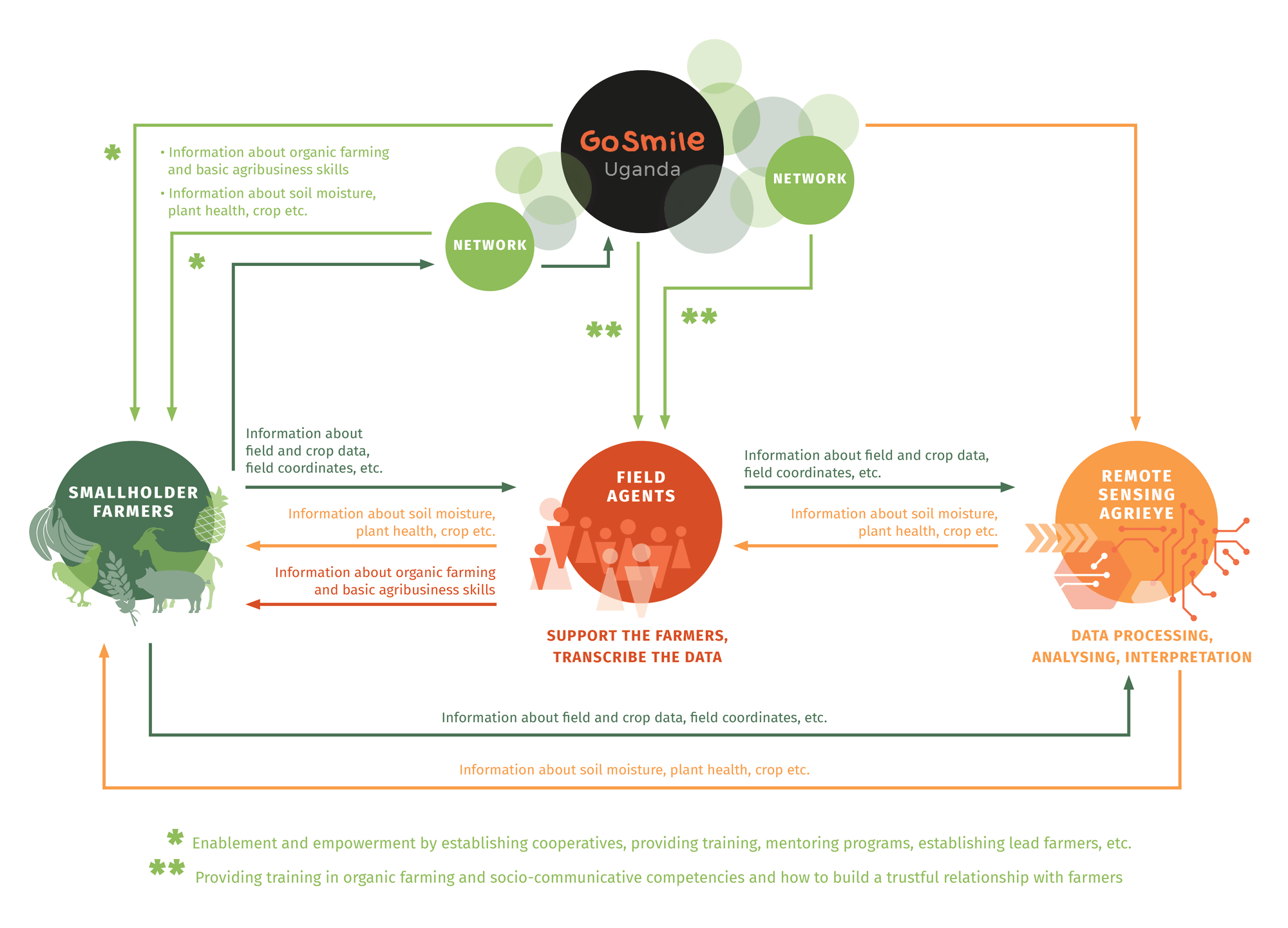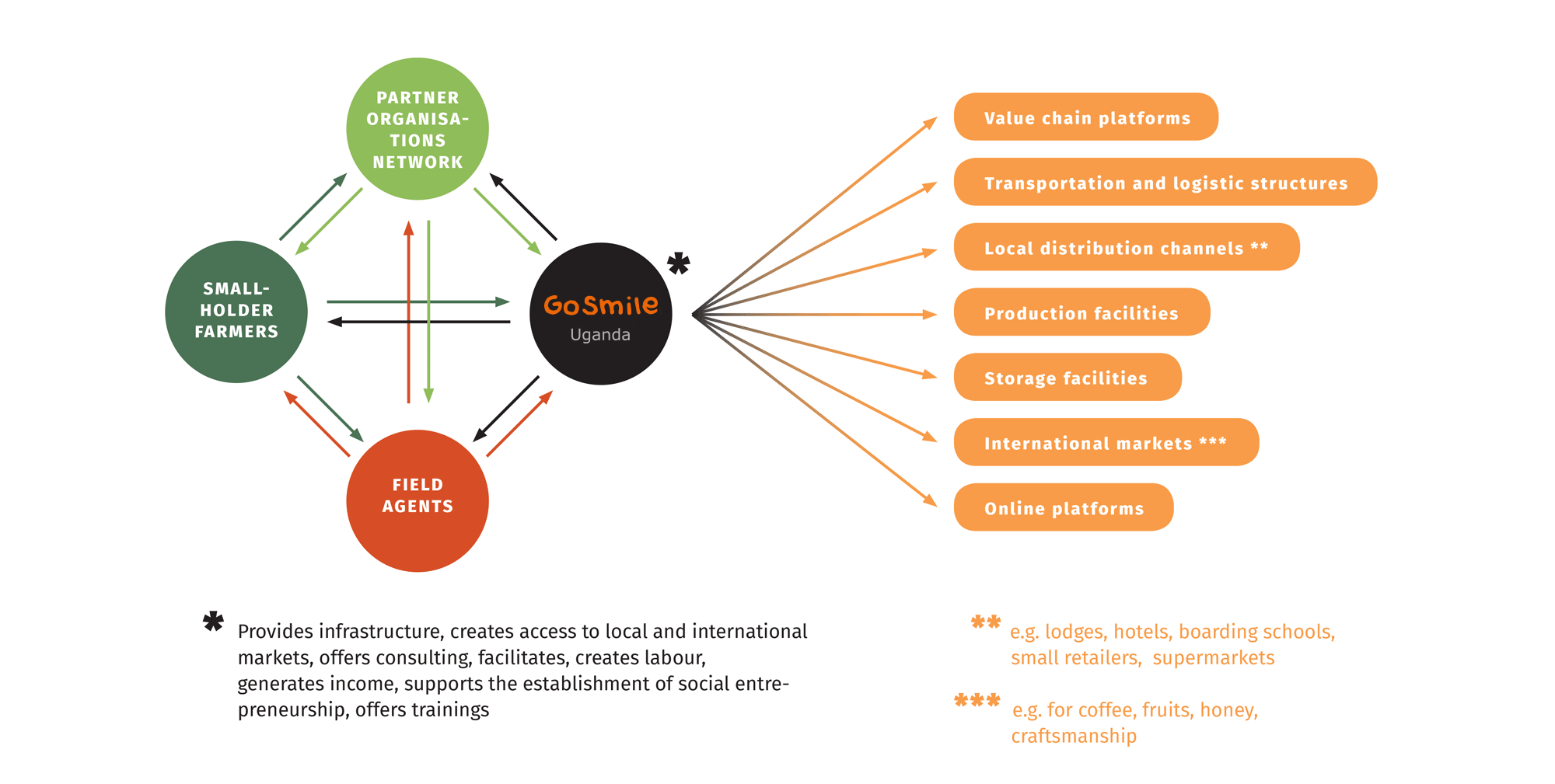Digital Farming – the GAME CHANGER in Africa’s Agriculture
Food availability is a critical issue in Africa. Moreover, 80% of food is provided by poor smallholder farmers. Digitalizing farming will reduce POVERTY and HUNGER.
Digital farming has the potential to contribute meaningful livelihood improvements not only for smallholder farmers but for the entire population of Africa. Apart from contributing to better nourishment and higher crop yields on the continent, digital farming will have a positive impact on environmental sustainability and climate change resilience.
Digitalization will consequently translate into higher income for farmers as well as all other
stakeholders along the agriculture value chain and create more employment possibilities.
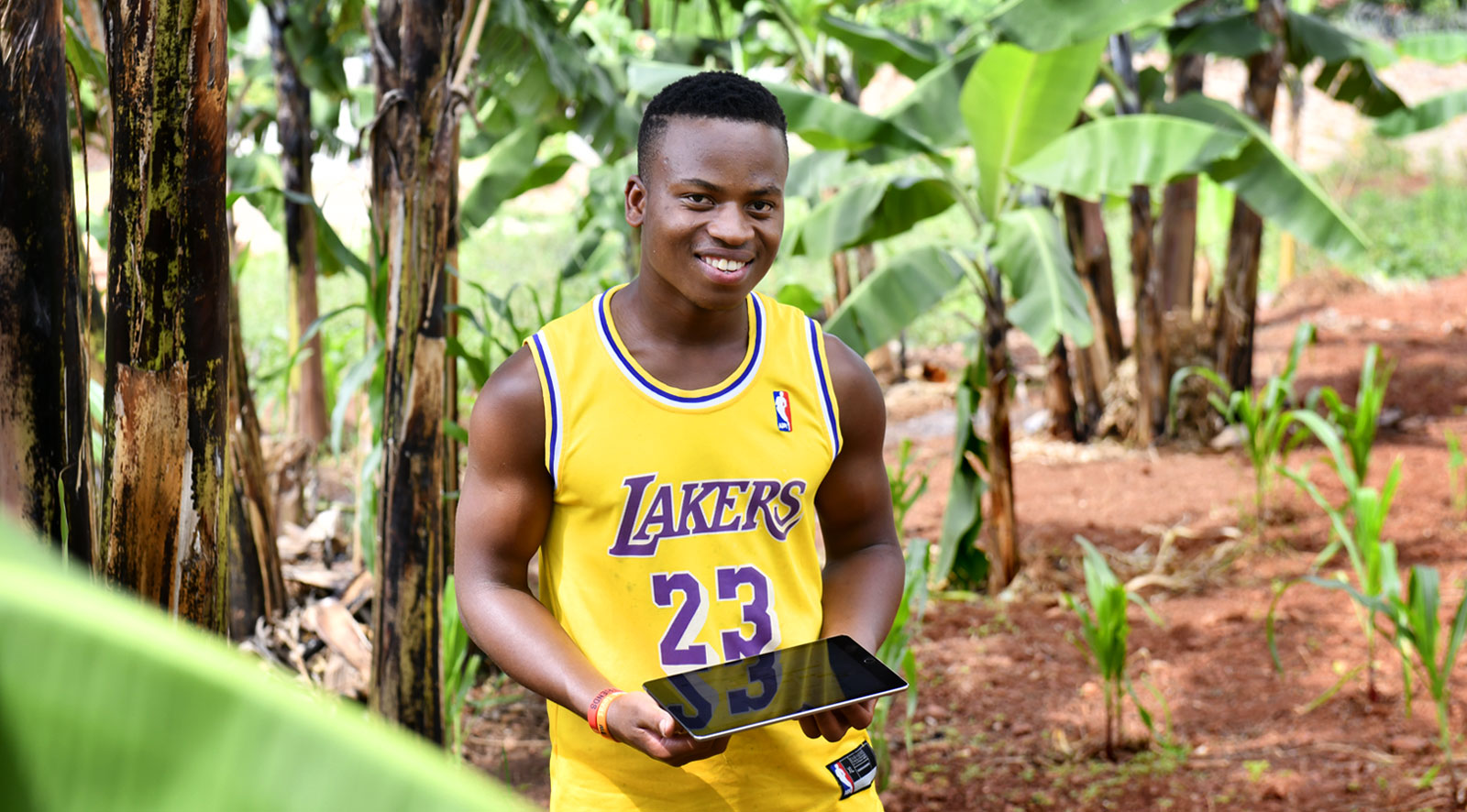
What we envision:
INNOVATIVE
DIGITAL FARMING CONCEPTS
which empower and enable smallholders by generating income along the complete value chain of farming products.
DEEP KNOWLEDGE
ABOUT ORGANIC
AGRICULTURE
OFFERING
INFRASTRUCTURE
ACCESSING
NATIONAL AND
INTERNATIONAL
MARKETS
by empowering smallholders to supply quality-farmed products.
From Space to Smallholder Farmers
Remote sensing in combination with artificial intelligence generates reliable agriculture related data. As a result of digitally-generated information, better agronomic solutions become available to farmers which increases their yields and income.
The combination of satellite and drone images enable the coverage of all types of farming, e.g. with different crops in a small space (coffee, vanilla, plantain, avocado), under all weather conditions such as clouds in rainy seasons. The continuously collection of farm data helps to improve and understand the farm situation and then to offer efficient solutions for optimal yields.
The farmers get information about:
- Crop health and crop growth assessment
- Crop harvest estimation
- Soil moisture estimation
- Irrigation planning and management
- Weather forecasts
- Soil management
Communicated in simple uncomplicated language by field agents who also collect feedback and train the farmers in digital literacy.
What is in it for our farmers?
Farmers, participating in the program will be accompanied by GSU throughout their farm planning, crop and animal production and their access to local and international markets.
Essential information about organic farming necessary for more biodiversity, improved harvests and better income are tailored for the farmers or cooperatives.
The farmers are benefitting from the implementation of saving groups and the organization of regular meetings for sharing ideas, coming together, enjoying and learning from each other.
Increased offers for access to local and international markets, also via digital platforms.
Offering Infrastructure
A local infrastructure, also covering distribution and storage facilities, will promote local food consumption and trade and will create business and job opportunities along the entire value chain of farming products.
We are setting up Water Supply Stations in communities, cooperatives, women centers and schools to provide access to clean drinking water.
Accessing national and international markets
Supplying quality-farmed products as honey, fruits and vegetables to:
- Open markets
- Hotels
- Restaurants
- Boarding schools
- Supermarkets
Facilitating international markets for Africa’s premium products as:
- Coffee
- Cacao
- Fruits
- Vegetables
- Nuts
